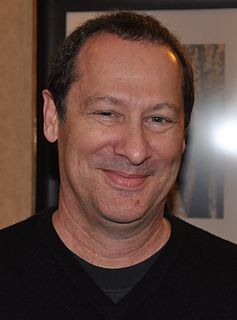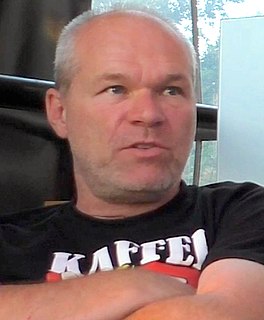A Quote by Henry Selick
We can still do a stop motion feature for about one-third of what it costs Pixar or DreamWorks or Blue Sky to make a feature. But nobody is interested in a film that cost $50 to 60 million with the potential to do $120 million. They want to risk big money to make huge money.
Related Quotes
When I said that something was going to cost a certain amount of money, I actually knew what I was talking about. The biggest problem that we were having on the financing front was people with lots of money saying "you need more money to make this film [Moon]," and us saying "no this is the first feature film we want to do it at a budget where we sort of prove ourselves at the starting end of making feature films; we can do this for $5 million." That is where the convincing part between me and Stuart came, we had to convince people with money that we could do it for that budget.
We have a conservative government that only thinks in terms of efficiency. They are spending a lot of money on military expenses and less and less on culture. My position is that culture can actually be economically viable. When I make a film, the film costs $3 million. Now, in Quebec, it grossed $3.5 million, which is a small film. It's not a comedy. There are no stars in it. And, it still grosses $3.5 million. That's just in Quebec.
Lets all be reminded, 60 million Americans are on Social Security, 60 million. A third of those people depend on 90% of their income from Social Security. Nobody in this country is on Social Security because they made the decision when they were starting work at 14 that they wanted to trust some of their money with the government.
How is it possible that a process can be democratic when it comes by way of money? If there is money then it can be elected a senator, it can be elected a representative. Do you know how much it cost to be elected president of the United States? The amount has reached, billions of dollars, 2 billion, 3 billion, 4 billion dollars, that's how much a presidential campaign costs. How much does a senatorial campaign cost? It costs 80 to 90 million dollars; or the campaign of a representative, 40 to 50 million. Is that really a democracy?
If you want to survive in the film industry, it's not about fighting for your visions because that's a given. It's thinking about how much is your vision going to cost, and then, what are the consequences, because you may have $100 million, but the reality is that $100 million needs to make $500 million to be a success.
The news media reported the $250 million as an unthinkably huge waste of money and proclaimed that something was wrong with NASA. The result was an investigation and a congressional hearing. Not to defend failure, but $250 million is not much more than the cost to produce Kevin Costner's film flop Waterworld.
They said, "You get $2 million to make the film, if you're not in it. If you are in it, you get $5 million to make the film." There was no way to make the thing for $2 million, so I made it for $5 million. And then, it turned out there was no way to make the thing for $5 million. That's when it got weird.




































